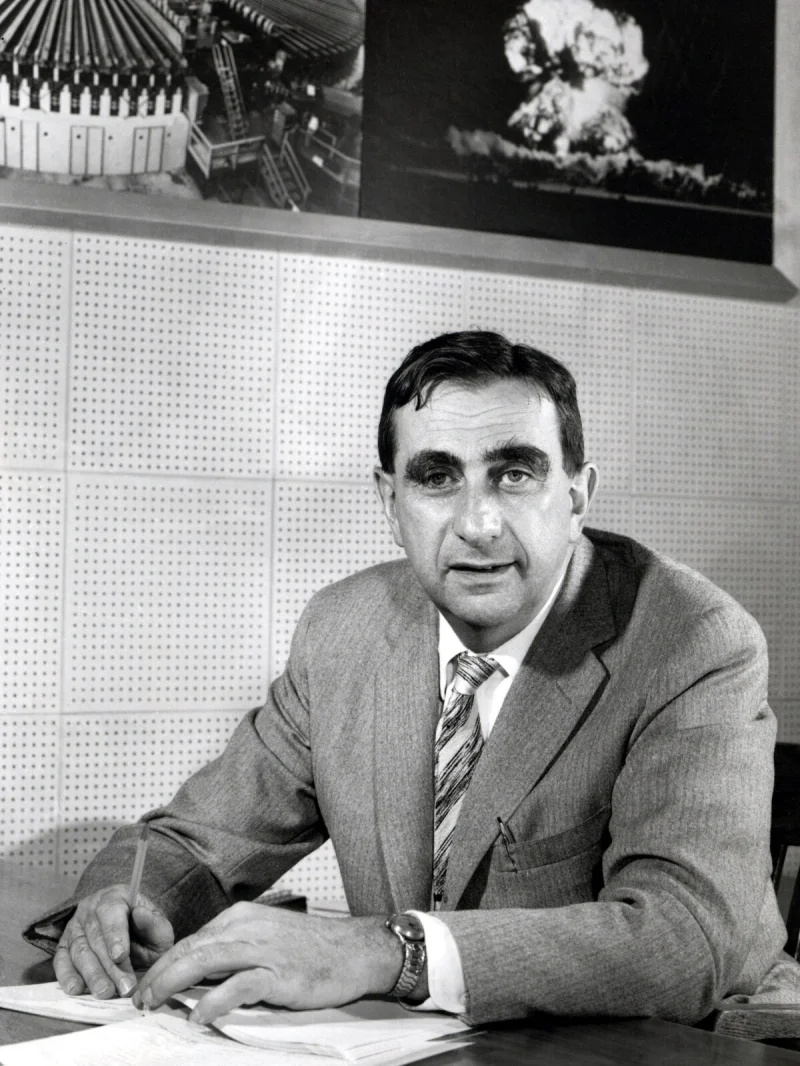Short Summary
Edward Teller was a Hungarian-American theoretical physicist, known for his pivotal role in the development of the hydrogen bomb. His work in the field of nuclear energy and weapons significantly impacted the mid-20th century geopolitical landscape. Teller's advocacy for nuclear power and defense initiatives made him a controversial but influential figure in science and policy. He is often referred to as the "father of the hydrogen bomb," reflecting his significant contributions to nuclear physics.
Early Life & Education
Edward Teller was born on January 15, 1908, in Budapest, Hungary, into a Jewish family. His father, a lawyer, and his mother, a pianist, encouraged his early interest in mathematics and science. Teller pursued his education in chemical engineering at the University of Karlsruhe, Germany. He later shifted his focus to physics, earning a Ph.D. in theoretical physics from the University of Leipzig in 1930 under the supervision of Werner Heisenberg. His early academic environment exposed him to leading physicists, influencing his future endeavors in the realm of nuclear science.
Career Highlights
Edward Teller's career was marked by his involvement in some of the most significant scientific projects of the 20th century. He was part of the Manhattan Project during World War II, contributing to the development of the first atomic bomb. In the post-war era, Teller was instrumental in advocating for and developing the hydrogen bomb, which was successfully tested in 1952. He held various academic and governmental positions, including a long tenure at the University of California, Berkeley, and played a key role in founding the Lawrence Livermore National Laboratory. Teller’s career was characterized by his advocacy for nuclear energy and defense.
Major Achievements
- Development of the Hydrogen Bomb: Teller was a key figure in the creation of the hydrogen bomb, significantly advancing nuclear weapons technology.
- Manhattan Project Contribution: He contributed to the development of the first atomic bomb during World War II.
- Founding of Lawrence Livermore National Laboratory: Teller was instrumental in establishing this major center for scientific research and defense.
- Advocacy for Nuclear Energy: He promoted the use of nuclear energy for peaceful purposes and national security.
Famous Quotes
- "The science of today is the technology of tomorrow."
- "Secrecy, once accepted, becomes an addiction."
Interesting Facts
- Edward Teller was portrayed in several films and documentaries about the Cold War and nuclear weapons.
- He was an advocate for the Strategic Defense Initiative, also known as "Star Wars," during the Reagan administration.
- Teller was awarded the Presidential Medal of Freedom in 2003 by President George W. Bush.
- Despite his contributions, Teller was often a controversial figure, particularly after testifying against J. Robert Oppenheimer.
Legacy / Influence
Edward Teller's legacy is marked by his significant contributions to nuclear physics and defense policy. His work on the hydrogen bomb and advocacy for nuclear deterrence shaped Cold War strategies and had a lasting impact on global nuclear policy. While his aggressive stance on nuclear weapons made him a contentious figure, his influence on scientific and military circles remains profound. His advocacy for nuclear energy also paved the way for its use in civilian applications.
FAQ
Q: Why is this person famous?
A: Edward Teller is famous for his role in developing the hydrogen bomb and contributing to nuclear science and defense policy.
Q: What was his role in the Manhattan Project?
A: Teller was a member of the Manhattan Project team that developed the first atomic bomb during World War II.
Q: Did he receive any notable awards?
A: Yes, Edward Teller received the Presidential Medal of Freedom in 2003.
Q: Was he involved in any controversies?
A: Teller was a controversial figure, notably for his testimony against J. Robert Oppenheimer, which affected Oppenheimer's career.












